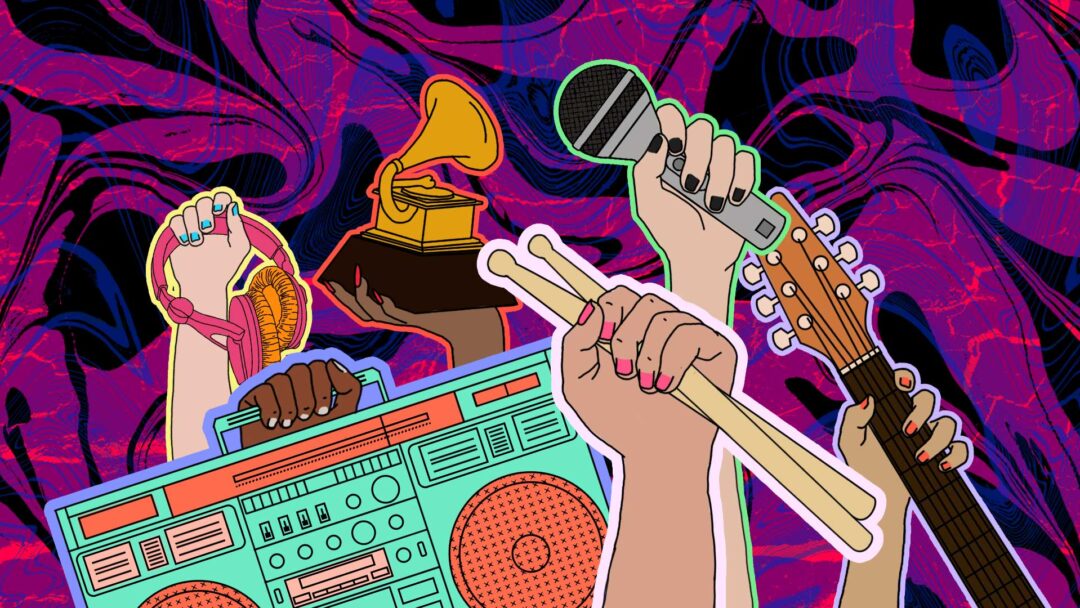For a city with a global reputation built on music, Manchester is playing a dangerously offbeat tune. While its legacy is still being shouted about in documentaries and tourism campaigns, grassroots music venues are being erased from the landscape in real time, with barely a nod to their historic, social, or artistic relevance. Retro Bar is the latest name to be scribbled onto the cultural kill list — a venue with 35 years of service to Manchester’s subcultures, music scenes, and creative lifeblood. And now? It’s scheduled for demolition. Because someone decided a multi-billion-pound science redevelopment mattered more than the community it will displace.
This isn’t just about a basement bar. It’s about a cultural artery being clamped shut by suits and a nefarious pattern of neglect, short-sightedness and cultural vandalism that’s unfolding across the country. It needs to be called out for what it is: a systemic issue that devalues culture in favour of sterile “progress.”
The Retro Bar Case: A Wake-Up Call Disguised as a Eulogy
Retro Bar’s impending closure in July 2025 should never have been on the cards. Not in a city that claims to champion music. Not when over 200 gigs a year have rung out from its two floors, drawing in over 20,000 punters annually. Not when it gave early stages to Frank Turner, Everything Everything and became the birthplace of The Chemical Brothers’ DJ career.
But the £1.7 billion Sister Masterplan between Bruntwood SciTech and The University of Manchester has other ideas. Ideas which, conveniently, didn’t include any meaningful protection or relocation for Retro. According to the venue team, the two sites offered as alternatives were unworkable. They weren’t offered relocation – they were offered what amounted to business funeral costs. A nod, a handshake, and a payout for winding everything down. A payout which wouldn’t cover half the costs of restarting somewhere new.
The venue team have done the legwork. They’ve scouted new locations. They’ve stayed in conversations. But conversations are meaningless when one party holds the power to bulldoze, and the other is left screaming into the dust.
The silence from decision-makers is deliberate. This is how councils kill culture: not with malice, but with omission. With selective inaction. With polite meetings, backhanded praise and a complete refusal to grasp the urgency and value of what they’re destroying.
Cultural Strategy Means Nothing Without Action
Manchester City Council has long boasted about its cultural capital. On paper, the city has a “world-class” cultural strategy. In practice, it’s handing eviction notices to the people who built its reputation. Retro Bar is one of the few remaining venues actively sustaining grassroots music in the city centre. And when you lose your grassroots, you lose your future.
Music Venue Trust has rightly pointed out the hypocrisy of councils waving the banner for music when it’s profitable or politically expedient – but refusing to legislate or advocate for the people who make it possible. The Council’s failure to intervene meaningfully doesn’t just reflect poorly on Manchester. It sends a message to every small venue in the UK: your heritage means nothing. Your impact means nothing. If we want the space, you’re gone.
And the gall of it all? The same people who want Retro gone will be the first to cite The Chemical Brothers as part of Manchester’s cultural heritage. They’ll happily slap their names on tourism campaigns, shout about local legends, and milk nostalgia for every drop it’s worth. But when it comes to doing the actual work of preserving cultural infrastructure, they vanish.
It’s not that the Council can’t protect spaces like Retro. It’s that they won’t. Because to do so would mean standing up to developers, pushing back on commercial pressure, and acknowledging that ‘regeneration’ is often demolition dressed up as progress.
Why It’s Never Just About One Venue
When venues like Retro go under, it’s easy to treat them as isolated losses. A sad footnote in the endless churn of urban development. But these closures are cumulative. They erode the connective tissue that binds music communities together. They erase training grounds, disrupt industry pipelines, and tear holes in cultural ecosystems that take decades to rebuild.
Retro Bar is an employer, training space, a platform for grassroots artists, a launchpad for national tours, a home for LGBT club nights during Manchester Pride, a rehearsal and recording space, a host to spoken word performances, film screenings and festivals. And, most vitally, it has offered all this not for profit, but because it mattered.
Everything Everything described it as a “vital training ground.” Frank Turner stressed how Retro gave him one of his first real platforms. These aren’t nostalgic endorsements – they’re statements of fact. Without spaces like Retro, scenes shrink. Talent pools dry up. And the next generation of artists has nowhere to start.
The numbers back it up. A recent Music Fans’ Voice survey revealed that nearly 94% of Mancunians want culturally significant music venues and nightclubs to be given protected status. The public wants these spaces to be preserved. But public will counts for nothing if councils and developers continue to sideline it.
We Know the Solutions. They’re Just Being Ignored.
The most infuriating part of this whole situation is its preventable nature. Solutions already exist. Councils could introduce protected status for culturally valuable music venues. They could integrate cultural infrastructure assessments into every major redevelopment plan. They could ensure viable relocation support and implement legal frameworks that give these spaces the same kind of stability given to heritage buildings and commercial tenants.
But they don’t. Because cultural spaces, especially ones associated with youth, marginalised communities, and subcultures, still aren’t seen as economically or socially essential. That’s the real sickness here. Councils are failing to understand that culture is infrastructure. It’s not an add-on. It’s a core component of what makes a city liveable, meaningful, and human.
Retro Bar’s team has done everything right. They’ve stayed in dialogue. They’ve offered solutions. They’ve rallied the community. Their crowdfunder isn’t just a desperate plea for survival — it’s a rallying cry for cultural continuity. They are not asking for a handout. They’re asking to keep doing what they do, in a new space, with dignity and support.
Conclusion: If They Can Bulldoze Retro Bar, They Can Bulldoze Anything
The demolition of Retro Bar isn’t just a threat to one building. It’s a warning shot to every grassroots venue across the UK. If this can happen in Manchester — a city synonymous with music — it can happen anywhere. And unless councils start prioritising cultural infrastructure with real, enforceable protection, we’ll keep watching our music scenes be razed to the ground.
But here’s the hope: this isn’t over. Retro is still fighting. So are its supporters. And if the outrage generated by this closure gets channelled into political pressure, we can change the tide. Music communities are used to being underestimated. But they’re also used to organising, campaigning, and surviving.
If every one of the 20,000 annual visitors donated just £2.50, Retro Bar would smash their £50,000 crowdfunding goal. Think of your donation as a democratic vote. 1 vote doesn’t matter, but if everyone parted with some digital spare change, the future of Retro Bar would be far more certain. Donate to the crowdfunder here.
Article by Amelia Vandergast










